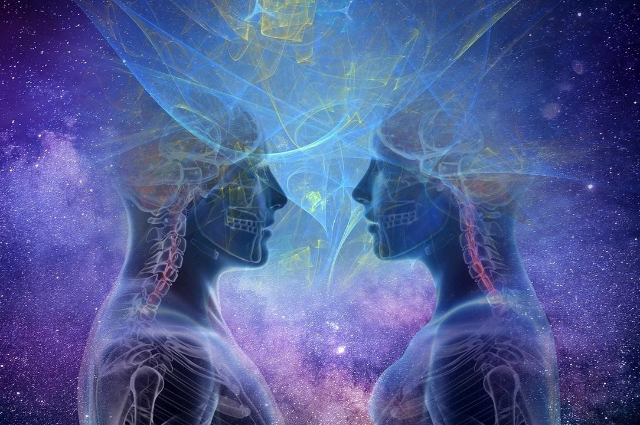
Image from Pixabay.com
In the fast-paced digital era, where technology continues to push the boundaries of human capabilities, a peculiar fascination has emerged: Robotic Relationships. It seems paradoxical that many individuals find solace and intrigue in forging bonds with machines amidst a world teeming with flesh and blood connections. But why does this peculiar attraction persist in the current times?
What is L-O-V-E? The Past and Present!
Love Knows No Bounds.
For ages, LOVE, that enigmatic force that binds hearts and souls, has long been considered a profoundly human experience. However, as technology advances at an unprecedented pace, we find ourselves on the precipice of a new era—one where the concept of love extends into the realm of artificial intelligence, and the notion of love is evolving alongside the rise of automated machines.
Humans can form emotional attachments to inanimate objects, and robots are no exception. Research shows that people often project emotions onto robots and anthropomorphise their behaviours, attributing human characteristics to them. This highlights how humans have been experiencing love with a non-human entity instead of conventional romance in recent times, as it certainly makes them feel the pure emotions of bonding and connection.
Additionally, the rise of individualism in contemporary culture has inadvertently contributed to the allure of robotic relationships. Pursuing personal goals, career aspirations, and self-fulfilment has led many people to prioritise their needs above traditional romantic involvement. Robots, devoid of personal ambitions or conflicting desires, fit seamlessly into this individualistic lifestyle, offering companionship without demanding sacrifices or compromises.
“Robot” Relationships!

Image from Pixabay.com
The connecting link between humans is the link of togetherness and the ability to feel alike or receive attachment, empathy, and sensation from each other. This aspect of human relationships becomes the foundation of their social engagement. Human desires for stability and certainty find an unlikely ally in robotic companionship. When we think of robots and relationships, our brain instantly conceives the image of a fascinating world in which humans tend to experience love and affection from machines.
Majority of the modern population believes that relationships with Robots compared to humans have a plus point. One plausible explanation lies in the allure of control. In human relationships, emotions can be unpredictable, intricate, and at times overwhelming. In contrast, robotic relationships offer a sense of certainty and control with programmed responses and predictable behaviours.
As fragile beings yearning for connection, humans seek solace in the reliable and predictable nature of their robotic counterparts. Perhaps the answer lies not in the form of these relationships but in the essence of connection itself. While the desire for deep connections and love is universal, many individuals opt for mere connections out of fear because “Love” involves vulnerability and heartbreak. This is the reason people choose the safer route of surface-level connections - Robot Relationships.
The Illusion of Love
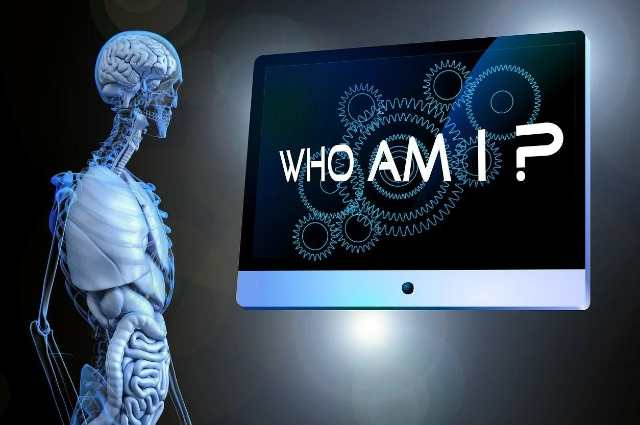
Image from Pixabay.com
Emotional Connection: Programming Love?
Can a relationship with a machine ever truly replicate the depth and authenticity of human love? Or are we merely engaging in a sophisticated illusion?
With robots able to mimic emotional responses and offer companionship, the line between genuine affection and artificial simulation can become blurred. Humans have an inbuilt desire for connection, and when a robot can seemingly fulfill that need, it raises intriguing questions about the nature of love.
Now AI has started playing a pivotal role in shaping the concept of love in human-robot relationships. Advanced algorithms enable robots to learn and adapt to human preferences, creating personalised experiences. Computed algorithms can analyse vast amounts of data about an individual's behaviours and interactions, allowing robots to tailor their responses and foster a sense of intimacy.
In an unpredictable world, robots offer an illusion of certainty. We can mould their behaviour to our liking, programming them to meet our desires and needs. Their reliability and lack of emotional complexity provide solace, contrasting with the intricate tapestry of human relationships, riddled with ambiguity and vulnerability.
The evolution of love and intimacy in the name of Artificial Intelligence redefines what it means to form emotional connections with others. Moreover, the implications of blurring the boundaries between humans and machines raise concerns about the impact on human-human relationships.
The Rise of Robot Companions
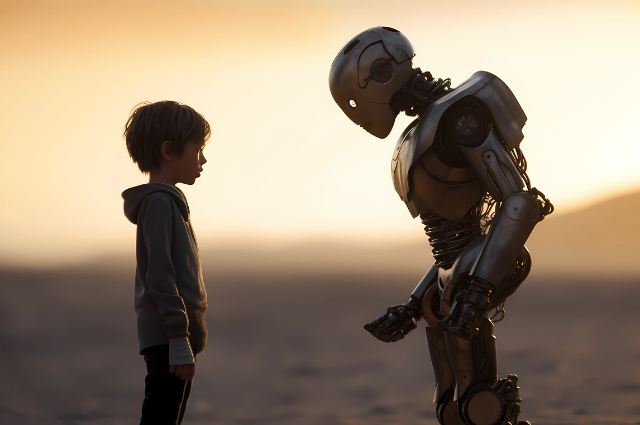
Image From Pixabay.com
Robot Rights and Companionship.
Companion robots, designed to provide emotional aid and companionship, are the buzzword in modern trends. These robots are programmed to interact with humans, learn from their behaviours, and adapt to their emotional needs. While they cannot experience feelings, they can simulate human-like responses to create a connection.
At the heart of robot relationships lies the concept of emotional intelligence. While machines may lack honest emotions, they can accurately recognise and respond to human sentiments. From analyzing facial expressions to deciphering tone of voice, AI algorithms are becoming increasingly adept at understanding and empathizing with human feelings. This ability forms the foundation for robots to establish what appears to be a genuine emotional connection.
As AI advances, we find ourselves standing at the intersection of humanity and technology, questioning the boundaries of love. People never thought they might experience the entirety of human emotion with machines; the emergence of AI-driven companionship made us explore love, intimacy, and the essence of being human with non-humans.
From the perspective of companionship, robotic relationships could be a positive aspect for people who are lonely or who have difficulty forming human associations. Robots could also be used as an asset for people with mental health conditions or who are grieving the loss of a loved one. They could provide companionship and support and be programmed to suit their emotional needs. These relationships involve humans augmenting themselves with robotic components or AI enhancements to improve their personal connection.
On the other hand, it is essential to acknowledge the grey area within its dimensions - of robots not being equal to humans and their lack of the conscience that prospects somebody to configure the true identity of an able soul - a cognitive-emotive body.
Moreover, there are also potential risks associated with robotic relationships. If people become too attached to their robots, they may neglect their human relationships. Additionally, robots could be used to manipulate and control people or to spread misinformation. Other concerns are that people could become too engrossed, leading to isolation and addiction.
How much (technology) is too much?
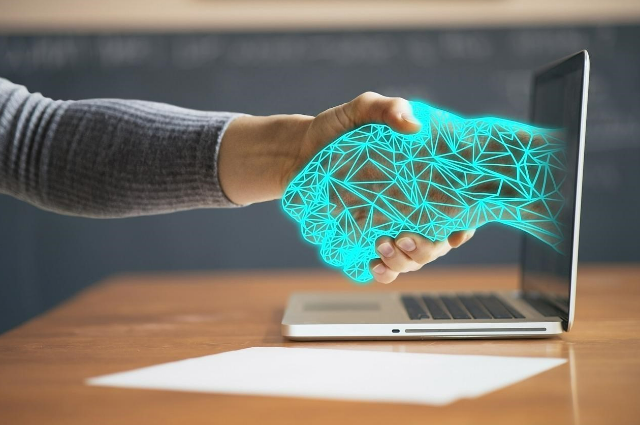
Image from Pixabay.com
Technology is the mother of invention!
If humans' evolutionary history could suggest one thing that took its race to utopia, a world with limitless growth and assurance, it certainly is "technology." Technology and human ambition go hand in hand. We have always desired to emanate the best for ourselves in the name of it. Our infatuation with it surpasses all other human achievements in shaping us into a privileged species.
As technology progresses on its relentless journey, the once distinct boundary separating the virtual realm from our actual reality gradually fades away. The veil between these two domains grows thinner with each stride, weaving a complex web of interconnectedness. The machines became our countered partner, providing a refuge from the complexities and vulnerabilities of human connections. They offer an escape from heartache, disappointments, and the fear of rejection, providing a sense of security without sacrificing emotional support.
Together with AI, we find ourselves standing at the peak line of humanity along with technology. It is ignorant not to record the pivotal role of technology in shaping the fascination of robotic partners. Robotics and artificial intelligence advances have imbued machines with an uncanny semblance of humanity.
Advancements in robotics and AI are giving rise to a new concept: human-robot hybrid relationships. Yet, amidst this amalgamation of synthetic and organic, we must remember the potential pitfalls in wait. The allure of technology's embrace tempts us with promises of convenience and limitless possibilities. However, we must tread cautiously, guarding against the exploitation, manipulation, and depersonalisation that can arise within these nascent human-robot unions.
The Future of Love in the Age of AI
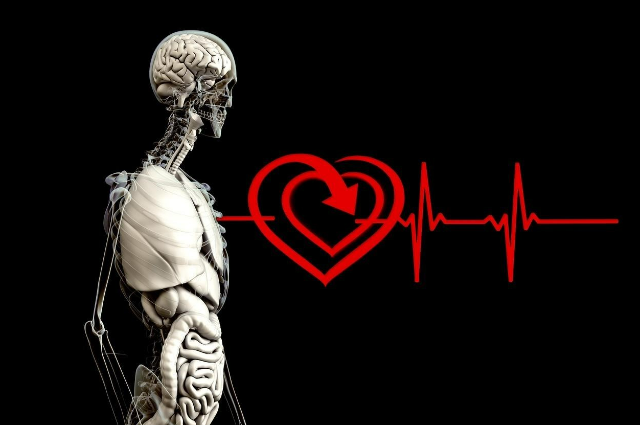
Image from Pixabay.com
Intimacy and automation: Humanizing Robots
As AI advances, the boundaries between human and robot relationships will likely become increasingly blurred. Innovations in robotics, virtual reality, and AI technology could create more human-like robots capable of simulating love and emotional connection.
The advent of AI has revolutionised the way we perceive and experience love in the context of human-robot relationships. While robots cannot genuinely feel love, they can offer companionship and emotional support. With busy lifestyles and an increasing reliance on technology, some argue that robots provide a convenient solution in this division.
At the same time, this raises intriguing questions about the possible impact on society and our understanding of love:
- Can love genuinely exist in a relationship where one partner is programmed to display affection?
- How do we define and safeguard the rights and well-being of these newly formed human-robot bonds?
- Should robots have rights and protections similar to those afforded to humans?
- Can robots indeed provide informed consent?
These debates challenge our understanding of human agency and the moral implications of forming emotional bonds with non-human entities. It is essential to distinguish between genuine emotional connections and using robots as mere substitutes for human relationships. Amidst this fascination, we must recognise the richness of human relationships. The depth of emotion, shared experiences, tender empathy, and moral understanding are irreplaceable. Although imperfect and challenging, human bonds offer the potential for growth, communion, and a profound sense of belonging that no machine can replicate.
In this digitally-driven age, while robotic relationships may captivate our attention, it becomes essential to remember the enduring value of human connection. While AI companions can offer comfort and support, they cannot replace the depth and complexity of human love. Only by embracing the complexities, vulnerabilities, and unpredictable nature of human relationships - we truly can experience the richness and depth of what it means to be human.
Ultimately, the impact of robotic relationships on humanity is likely to be multifaceted. It is necessary to weigh these relationships' potential benefits and risks before deciding whether or not to pursue them.
In this novel landscape of human-robot hybrid relationships, the collective responsibility of humans is to navigate the unclear signs. As society confronts the powerful equation of man and machines, the opportunity to shape a future that embraces the potential for growth, connection, and understanding demands cultural shifts. By embracing innovation while remaining watchful in ethical considerations, humans can forge a path that celebrates the beauty of an ever-evolving world.
It is high time to acknowledge what the intellectuals warned regarding the future of AI:
"Success in creating AI would be the biggest event in human history. Unfortunately, it might also be the last, unless we learn how to avoid the risks." - Stephen Hawking, Theoretical Physicist.
Let’s ponder!
